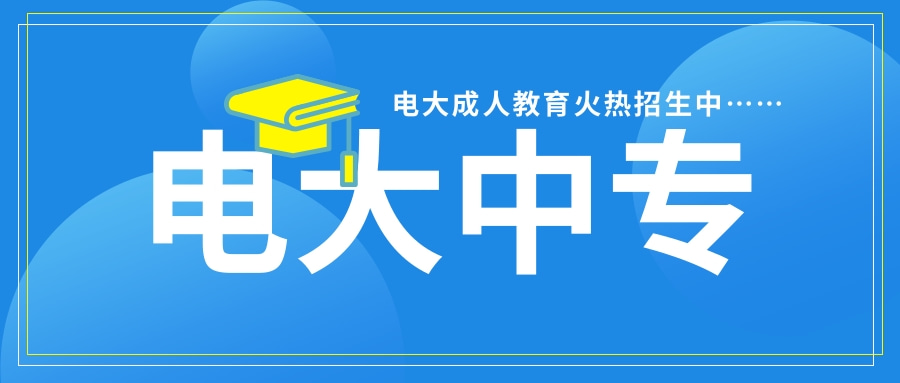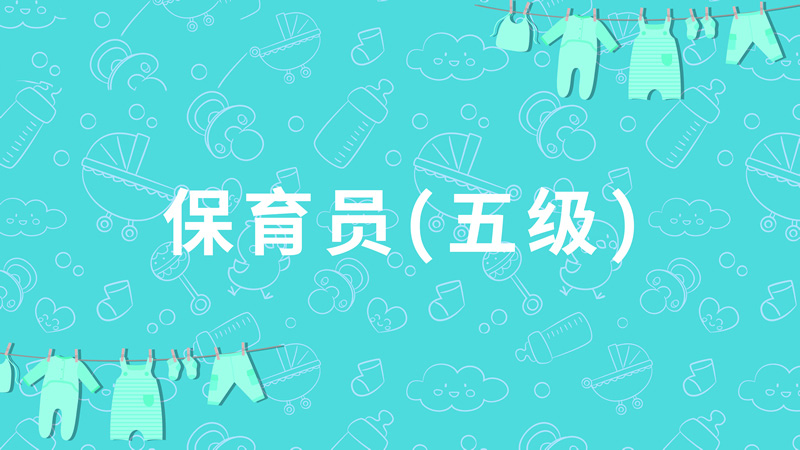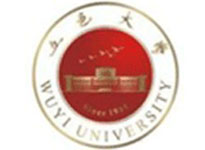华南理工大学网络教育学院招生入学测试《大学英语》专科起点本科复习题
编辑:广州继续教育网 时间:2020-02-18 点击:
华南理工大学网络教育学院
招生入学测试
《大学英语》专科起点本科复习题
I. 词汇与语法
Directions: There are 20 sentences in this part. For each sentence there are four choices marked A, B, C and D. Decide the ONE answer that best completes the sentence or best replaces the underlined words.
◎题型:单选题
- I just heard____ bank where Dora works was robbed by____ gunman wearing a mask.
【C】
- If you miss this chance, it may be years ____ you get another one.
【B】
- Working as a manager, Rebecca found it hard ______ between work and her family.
【B】
- —Is the project difficult for the students?
A. has been provided B. has provided C. had been provided D. had provided
【A】
- The whole class applauded wildly at the end of the speech, ______ greatly encouraged Bob.
【C】
-
A ______word is often on a higher pitch and it has a longer duration, i.e. the vowel appears to be longer.
A. pressed B. crucial C. stressed D. impressed
-
For the good of both parties, the discussion soon struck the real issue.
A. difficulty B. question C. problem D. consideration
- Once ______, the book will surely attract readers’ attention since it is related to people’s health.
【C】
- --- Do you think the Stars will beat the Bulls?
A. hope B. prefer C. expect D. want
【C】
- _______ production up by 100%, the company has had another excellent year.
【C】
- They required that the books _______ to the school library at once.
【A】
- The boy, who is fond of reading, seldom goes to the gym, ______?
【C】
- --- You’re very brave to say you didn’t agree with your boss.
A. to do B. having done C. to be doing D. to be done
【B】
- He is much better, but has not fully ______ from his liver failure.
【D】
- Since I won the big prize, my telephone hasn’t stopped ringing. People ____ to ask how I am going to spend the money.
【D】
- We are going to the theater tomorrow ______ all the tickets are sold out.
【B】
- We were almost asleep when Chris finally showed up.
【D】
- My new classmate told us about his trip to ______ Great Wall. He said it was _______exciting experience for him.
【A】
- _______is mentioned above, the number of the students in senior schools______ increasing.
【B】
- Mrs. Black doesn’t believe her son is able to design a digital camera, _____?
【D】
- Keep in mind _____ you want others to respect you, you must respect others first.
【B】
- Don’t expect too much of him, ________, he is a disabled man.
【B】
- ____ you learn, _____ you will get.
B. Much more knowledge; much more equipped
C. The much knowledge; the much equipped
D. If more knowledge; then much equipped
【A】
- I will never forget the days __________ we spent together.
【D】
25. Don’t worry. I’ll spare no ______ to help you to pull through all kinds of difficulties.
A. Strength B. force C. efforts D. Energy
【C】
26. His opinions are _________ his father’s.
A. similar to B. a same with C. the same to D. similar with
【C】
27. She is one of the few girls who ______passed the examination.
A. Was B. were C. has D. have
【D】
28. _______ you’ve got a chance, you might as well make full use of it.
A. Now that B. So C. Although D. As soon as
【A】
29. This is the book _________ I borrowed from the library just now.
A. that B. who C. what D. where
【A】
30. The assistant _________ served her did not like the way she was dressed.
A. Who B. which C. he D. whom
【A】
II. 阅读理解
Directions: There are 2 passages in this part. Each passage is followed by some questions or unfinished statements. For each of them there are four choices marked A, B, C and D. You should decide on the best choice.
◎题型: 材料题
Passage 1
Do you love holidays but hate the increase weight that follows? You are not alone.
Holidays are happy days with pleasure and delicious foods. Many people, however, are worried about the weight that comes along with these delicious foods.
With proper planning, though, it is possible to control your weight. The idea is to enjoy the holidays but not to eat too much. You don't have to turn away from the foods that you enjoy. The following suggestions may be of some help to you.
Do not miss meals. Before yon leave home for a feast(宴会),have a small, low-fat snack(小吃). This may help to keep you from getting too excited before delicious foods. Begin with clear soup and fruit or vegetables. A large glass of water before you eat may help you feel full. Use a small plate; a large plate will encourage you to have more than enough.
Better not have high-fat foods. Dishes that look oily or creamy have much fat in them.
Choose lean meat(瘦肉 ).Fill your plate with salad and green vegetables.
If you have a sweet tooth, try mints (薄荷) and fruits. They don’t have fat content as cream and chocolate.
Don’t let exercise take a break during the holidays. A 20-minute walk after a meal can help burn off excess(过多的) calories.
1. Holidays are happy days with pleasure but they may ______
A. bring weight problems B. bring you much trouble in your life
C. make you worried about your foods D. make you hate delicious foods
【A】
2. In order to really enjoy your holidays without putting on weight, you'd better__
A. drink much water and have vegetables only B. not eat the food in high fat
C. not accept invitations to feasts D. turn away from delicious foods
【B】
3. According to the passage, ___ is a necessary part to stop you from putting on weight.
A. vegetables B. water C. calories of energy D. physical exercise
【D】
4. Many people can't help putting on weight after the holidays because they _______ .
A. can't control themselves B. go to too many feasts
C. enjoy delicious foods D. can't help turning away from the foods
【A】
5. Excess calories can be found in your body in the form of___ .
A. energy B. fat C. food D. something invisible (看不见)
【B】
◎题型: 材料题
Passage 2
I came to study in the United States a year ago .Yet I did not know the real American society until I was injured in a car accident because after the accident I had to see a doctor and go to court.
After the accident .my roommate called a doctor for me. I was very grateful and determined to repay him one day. But the next day, he asked me to pay him $200 for what he had done. I was astonished. He had good reason to charge me, he said. And if I wanted to collect money from the person who was responsible for my injury, I’d have to have a good lawyer. And only a good doctor can help me get a good lawyer .Now that he had helped me find a good doctor, it was only fair that I should pay him.
But every day I went to see the doctor, I had to wait about 50 minutes. He would see two or three patients at the same time, and often stop treating one so as to see another. Yet he charged me $115 each time .The final examination report consisted of ten lines, and it cost me $215.
My lawyer was all smiles the first time we met. But after that he avoided seeing me at all. He knew very well the other party was responsible for the accident, yet he hardly did anything. He simply waited to collect his money. He was so irresponsible that I decided to dismiss him. And he made me pay him $770.
Now I had to act as my own lawyer. Due to my inexperience, I told the insurance company the date I was leaving America. Knowing that, they played for time…and I left without getting a cent.
1. The author’s roommate offered to help him because________.
A. he felt sorry for the author
B. he thought it was a chance to make some money
C. he knew the doctor was a very good one
D. he wanted the author to have a good lawyer
【B】
2. A good doctor is essential for the author to __________.
A. be properly treated
B. talk with the person responsible for the accident
C. recover before he leaves America
D. eventually get the responsible party to pay for his injury
【D】
3. The word “charge” in the third paragraph means_________.
A. be responsible B. accuse C. ask as a price D. claim
【C】
4. Both the doctor and the lawyer in this passage are very__________.
A. friendly B. selfish C. professional D. busy
【B】
5. What conclusion can you draw from the story?
A. Going to court is something very common in America.
B. One must be very careful while driving a car.
C. There are more bad sides in America than good sides.
D. Money is more important than other things in the US.
【D】
◎题型: 材料题
Passage 3
Norm Pethrick, a 36-year-old man in Australia’s northern city Darwin, was praised on Thursday for jumping onto a crocodile’s back to save his wife Wendy at Litchfield National Park, a popular tourist spot southwest of Darwin, a local newspaper reported.
Ms Pethrick was standing on a river bank Wednesday afternoon when the saltwater crocodile lunged (扑), locking its jaws on both her legs as it tried to drag her underwater.
Norm Pethrick, who with his wife had been collecting water, immediately went to help her. He jumped onto the back, poked (戳) the eyes of the crocodile and finally got his wife free.
Ms Pethrick was later taken to Royal Darwin Hospital for a medical treatment. The doctors said she was suffering eight puncture wounds (伤口) in her right leg, a puncture wound in her left leg and a serious cut to one of her fingers.
“This could have been a fatal and tragic situation,” said the general manager of Royal Darwin Hospital (RDH), Dr Len Notaras, according to a local report.
He said Ms Pethrick was saved by her husband’s “quick and diligent actions”.
Dr Notaras also said she would remain in hospital for three to four days and have an operation to clean the wounds, which are easy to get infected because of bacteria (细菌) on the teeth of the crocodile.
1. This passage is most likely to be found in _____.
A. a travel guide B. a newspaper C. a textbook D. a novel
【B】
2. The crocodile attacked Ms Pethrick when she was ______.
A. swimming in the river B. standing on the river bank
C. watching the crocodile D. fishing in the water
【B】
3. Which of the following statements is TRUE about Ms Pethrick?
A. Her eyes were badly poked. B. She had eight wounds altogether.
C. One of her fingers also got hurt. D. One of the crocodile’s teeth was found in her leg.
【C】
4. According to the passage, Norm Pethrick can be described as following EXCEPT ______.
A. brave B. diligent C. quick D. humorous
【D】
5. Which of the following would be the best title for this passage?
A. The husband should save the wife
B. A man saves wife’s life from crocodile’s jaws
C. A crocodile is not so dangerous as people imagine
D. Human beings can beat crocodiles sometimes
【B】
◎题型: 材料题
Passage 4
Normally a student must attend a certain number of courses in order to graduate, and each course which he attends gives him a credit which he may count towards a degree. In many American universities the total work for a degree consists of thirty-six courses, each lasting for one semester. A typical course consists of three classes per week for fifteen weeks. While attending a university a student will probably attend four or five courses during each semester. Normally a student would expect to take four years attending two semesters each year. It is possible to spread the period of work for the degree over a longer period. It is also possible for a student to move between one university and another during his degree course, though this is not in fact done as a regular practice.
For every course that he follows a student is given a grade, which is recorded, and the record is available for the student to show to prospective employers. All this imposes pressure from the strain of work, but in spite of this some students still find time for great activity in student affairs. Elections to positions in student organizations arouse much enthusiasm. The effective work of maintaining discipline is usually performed by students who advise the academic authorities. Any student who is thought to have broken the rules, for example by cheating, has to appear before a student court. With the enormous numbers of students, the operation of the system does involve a certain amount of activity. A student who has held one of these positions of authority is much respected and it will be of benefit to him or her later in his or her career.
1. Normally a student would at least attend _______ classes each week.
A. 10 B. 12 C. 15 D. 20
【B】
2. According to the first paragraph, an American student is allowed______.
A. to live in a different university
B. to take a particular course in a different university
C. to live at home and drive to classes
D. to get two degrees from two different universities
【B】
3. American university students are usually under pressure of work because____.
A. their academic performance will affect their future career
B. they are heavily involved in student affairs
C. they have to observe university discipline
D. they want to run for positions of authority
【C】
4. Some students are enthusiastic for positions in student organizations probably because__________.
A. they hate the constant pressure and strain of their study
B. they will then be able to stay longer in the university
C. such positions help them get better jobs
D. such positions are usually well paid
【C】
5. The student organizations seem to be effective in ___________.
A. dealing with the academic affairs of the university
B. ensuring that the students observe university regulations
C. evaluating students performance by bringing them before a court
D. keeping up the students enthusiasm for social activities
【B】
◎题型: 材料题
Passage 5
Today anyone will accept money in exchange for goods and services. People use money to buy food, furniture, books, bicycles and hundreds of other things we need or want. When they work, they usually get paid in money.
Lots of the money today is made of paper. But people used to use all kinds of things as money. One of the first kinds of money was shells. Shells were not the only things used as money.
In China, cloth and knives were used. In the Philippine Islands, rice was used as money for a long time. Some Africans once used elephant tusks, monkey tails, and salt as money.
The first metal coins were made in China. They were round and had a square hole in the center. Different countries have used different metals and designs for their money. Later, countries began to make coins of gold and silver.
But even gold and silver were inconvenient if you had to buy something expensive. Again the Chinese thought of a way to improve money. They began to use paper money. The first paper money looked more like a note from one person to another than the paper money used today.
Money has had an interesting history, from the days of shell money until today.
1. In the Philippines Islands ______ was once used as money.
A. rice B. knife C. cloth D. wheat
【A】
2. What was first used as money? ______.
A. Elephants tusks B. Cloth C. Salt D. Shells
【D】
3. The first metal coins looked like ______.
A. square-shaped with some designs on them
B. square-shaped with a round hole in the center
C. round-shaped with a square hole in the middle
D. round-shaped with a round hole in the middle
【C】
4. The first paper money ______.
A. was passed from west Asia to China B. looked like a note used today
C. was first used in Europe D. looked like a piece of fur
【B】
5. We can infer from the passage that ______.
A. paper money isn’t difficult to make
B. money must be suited to carry
C. people need money to exchange goods with each other
D. people prefer metal coins to paper notes
【B】
◎题型: 材料题
Passage 6
We find that bright children are rarely held back by mixed -ability teaching. On the contrary, both their knowledge and experience are enriched. We feel that there are many disadvantages in streaming(把……按能力分班)pupils. It does not take into account the fact that children develop at different rates. It can have a bad effect on both the bright and the not- so-bright children. After all, it can be quite discouraging to be at the bottom of the top grade!
Besides, it is rather unreal to grade people just according to their intellectual ability. This is only one aspect of their total personality. We are concerned to develop the abilities of all our pupils to the full, not just their academic ability. We also value personal qualities and social skills and we find that mixed-ability teaching contributes to all these aspects of learning.
In our classrooms, we work in various ways. The pupils often work in groups: this gives them the opportunity to learn to cooperate to share, and they develop leadership skills. They also learn how to deal with personal problems as well as learning how to think, to make decisions, to analyze and evaluate, and to communicate effectively. The pupils learn from each other as well as from the teacher.
Sometimes the pupils work in pairs; sometimes they work on individual tasks and assignments, and they can do this at their own speed. They also have some formal class teaching when this is proper. We encourage our pupils to use the library, and we teach them the skills they need in order to do this efficiently. An advanced pupil can do advanced work: it does not matter what age the child is. We expect our pupils to do their best, not their least, and we give them every encouragement to achieve this goal.
1. In the passage the writer’s attitude towards “mixed-ability teaching” is ________.
A. critical. B. questioning.
C. agreeable. D. objective.
【C】
2. By “held back” the writer means “________.”
A. made to remain in the same classes.
B. forced to study in the lower classes.
C. drawn to their studies.
D. prevented from advancing.
【D】
3. The writer argues that a teacher’s chief concern should be the development of the student’s _______.
A. personal qualities and social skills.
B. total personality.
C. learning ability and communicative skills.
D. intellectual ability.
【B】
4. Which of the following is not mentioned in the third paragraph?
A. Group work gives pupils the opportunity to learn to work together with others.
B. Pupils also learn to develop their reasoning abilities.
C. Group work provides pupils with the chance to learn to be capable organizers.
D. Pupils also learn how to take part in teaching activities.
【D】
5. The writer’s purpose in writing this passage is to _______.
A. argue for teaching bright and not-so-bright pupils in the same class.
B. recommend pair work and group work for classroom activities.
C. offer advice on the proper use of the library.
D. emphasize the importance of proper formal classroom teaching.
【A】
◎题型: 材料题
Passage 7
How do you get a man to do his share of the housework? If you are like most women, you’ve faced this question the hard way.
A man will enjoy a clean, orderly house, but he usually won’t make the effort to clean or organize it. This doesn't mean that a woman has to do all the housework; she may have to manage many of the household duties, and request her partner’s participation(参与). A woman can often say that men and women should take equal responsibility(责任) for housework.
Very few men are raised to be fully responsible for housework, and many men look on housework as women’ s work. On the other hand, most men will readily work around the yard, make repairs and complete projects on weekends or evenings, and it’s important that you give your man appreciation for those things, too. Most men will take on a little additional housework around the house if asked politely. They are even more likely to do housework if they can choose what they want to do, and do it without being monitored.
Here’s the key: men want to feel that they are doing housework either because they want to do a task, or because they simply want to please their women. Men are much less likely to take on household tasks they consider uninteresting and unimportant. In other words, men are likely to do a household task just for the good of the house.
1. The passage is mainly about how to _____.
A. get men to take on some housework
B. get men to serve their families
C. praise men’ housework
D. make men do all the housework
【A】
2. According to the passage, a man_____.
A. is willing to do housework
B. likes to be told to do housework
C. is taught to be responsible for housework from childhood
D. likes a clean house but doesn’t make efforts to clean it
【D】
3. In order to get men to do some housework, women should often_____.
A. order them to do their share
B. ask them to do some housework politely
C. blame men’ s laziness
D. monitor men’ s work
【B】
4. According to the passage, the underlined sentence in the last paragraph means that men won’t _____.
A. work without any payment
B. do unimportant household tasks
C. do housework without women’ s praise
D. please their wives
【B】
5. According to the passage, which of the following would a husband most probably like to do?
A. Cleaning the table. B. Doing some sewing.
C. Painting the fence. D. Asking his wife to work on the yard.
【C】
◎题型: 材料题
Passage 8
Europe is now the biggest market for organic food in the world, having grown by 25 percent a year over the past 10 years. Denmark’s agriculture minister is herself an organic farmer. The UK market for organic food grew by 55 percent in 2000, while the food market as a whole grew by only one percent. Yet only seven percent of British shoppers account for nearly 60 percent of organic sales. However popular the idea of organic farming may be, it is still an interest for only a few people.
So what makes the idea of organic farming popular? Organic farming means farming with natural materials, rather than with man-made fertilizers or pesticides. Organic farmers rely on many methods — such as crop rotation (农作物的轮作) and the use of resistant(有抵抗力的) varieties, because they are necessary for organic farmers to compensate for the shortage of man-made chemicals.
Organic farming is often supposed to be safer than traditional farming for the environment. Yet after a long research on organic farming worldwide for a number of years, science continues to be against this opinion. The House of Commons committee on agriculture publicized that, even with complete research work, it would fail to find any scientific evidence to prove “that any of claims (宣称)made for organic farming is always true”.
However, the talk about the benefits of organic farming is going on. This is partly because many people depend on their individual farm, the soil, the weather, and so on.
1. The first paragraph mainly tells us _____.
A. organic farming has been performed only in Europe over the past 10 years
B. governments of European countries have cared less about organic farming
C. organic farming is far from being as popular as expected
D. European countries need organic food more than the other countries in the world
【C】
2. The underlined words “compensate for” in the second paragraph probably mean “________”.
A. argue for B. care for C. make up for D. pay for
【C】
3. What can we know about organic farming?
A. It refers to farming with natural materials, instead of chemical fertilizers.
B. It refers to farming with chemical fertilizers rather than natural fertilizers.
C. It refers to farming with soil rather than any other thing.
D. It refers to growing crops with man-made fertilizers and pesticides.
【A】
4. According to the third paragraph, _____.
A. organic farming is safer than traditional farming for the environment
B. the idea that organic farming is safer has not been proven by science
C. organic farming is accepted by the UK’s House of Commons committee
D. organic farming is preferred to traditional farming
【B】
5. Which of the following is TRUE, according to the passage?
A. The UK’s agriculture minister is an organic farmer.
B. Organic farming is popular with young people.
C. Farmers make use of many different kinds of methods to improve the organic sales system.
D. Ninety-three percent of British shoppers don’t buy organic products.
【D】
◎题型: 材料题
Passage 9
Do you know of anyone who uses the truth to deceive(欺骗)? For example,someone might say,“I just won a hundred dollars on the lottery(彩票).It was great.I took that dollar ticket back to the store and turned it in for one hundred dollars!”
This guy's a winner,right? We then discover that he bought $ 200 worth of tickets,and only one was a winner.He is really a big loser!
He didn’t say anything that was false,but he left out important information on purpose.That’ s called a half-truth.
Some politicians often use this trick.Let’ s say that during Governor Smith’ s last term,her state lost one million jobs and gained three million jobs.Then she seeks another term.One of her opponents(对手)says,“During Governor Smith’s term,the state lost one million jobs!” That’ s true.However,an honest statement would have been,“During Governor Smith's term,the state had a net gain of two million jobs.”
Advertisers(广告商) will sometimes use half—truths.It’ s against the law to make false statements so they try to mislead you with the truth.An advertisement might say,“Nine out of ten doctors advised their patients to take Yucky Pills to cure toothache.”It fails to mention that they only asked ten doctors and nine of them work for the Yucky Company.
1. How much did the lottery winner lose?
A.one hundred dollars. B.Two hundred dollars.
C.Three hundred dollars. D.Four hundred dollars.
【A】
2. We may infer that the author believes people should_______.
A.buy lottery tickets if possible B.make use of half—truths
C.be careful about what they are told D.not trust the Yucky Company
【C】
3. What can we know from the example of the Yucky Pill advertisement?
A.False statements are easy to see through.
B.Half-truths are often used to mislead people.
C.Doctors like to act in advertisements.
D.Advertisements are based on facts.
【B】
4. How many examples does the writer give to show how the truth is used to deceive?
A.One. B.Two. C.Three. D.Four.
【C】
5. Which of the following best expresses the main idea of the passage?
A.He’ s really a big loser!
B.Sometimes the truth can lie as well.
C.Advertisers will sometimes use half truths.
D.It’ s against the law to make false statements.
【B】
◎题型: 材料题
Passage 10
We live in a digital world now, and a student's technology needs have changed. For the early years, say when you are in primary school, you can get by with no technology at all. Even if you have a computer, it's a good idea to get children familiar with libraries. At this age, trips to the library are like family outings.
As you get closer to middle school, a computer with Internet access becomes more of a necessity. Teachers will often give assignments that require a student to use the Internet for research. After a computer, technology choices for students become more difficult to make – especially when it comes to cell-phones. Kids will beg their parents for a cell-phone, especially in middle school. For many parents, it's a safety issue: They want to know that their kids can reach them quickly if necessary. For teachers, cell phones can be used to record lessons when students are absent. But many teachers dislike cell-phones. Some kids send messages or have talks in the class. Sending messages also raises the problem of cheating on exams. More and more schools are now forbidding the use of cell-phones.
Many kids see iPods as necessary things to have. iPods are great for music, but do they do anything good for your children’s education? Maybe they do. That’s the opinion of Doug Johnson, an educator for 30 years. Johnson says that educators should accept all new forms of technology in the classroom, including iPods. “Some do more with their cellphones than we can do with our laptops,” he jokes. “I don’t think we should be afraid. The truth is that it’s easier to change the way we teach than to change the technology habits of an entire generation.”
1. According to author, primary school children should___.
A. use the computer and the Internet regularly
B. ask their parents to buy them cell-phones
C. buy iPods to listen to music
D. go to libraries to read more books
【D】
2. Why do parents agree to buy their children cell-phones?
A. They want their children to be cool.
B. They think cell-phones be helpful to their study.
C. They want to keep in touch with their children.
D. They want their children to keep up to date.
【C】
3. The following are all reasons why many teachers dislike cell-phones EXCEPT ____.
A. cell-phones can be used to cheat on exams
B. schoolchildren will send messages during class
C. cell-phones can be used to record lessons
D. schoolchildren might talk on them during class
【C】
4. What does the underlined word “that” refers to?
A. iPods can be used to listen to music.
B. iPods can be helpful for children’s education.
C. iPods can be used to play games.
D. iPods are necessary for children’s lives.
【B】
5. We can infer from what Doug Johnson said that _____.
A. cellphones are not useful to students
B. teachers should let students use cell-phones
C. it’s better for teachers to change their teaching methods
D. schoolchildren should follow the trends(潮流) of fashion
【C】
◎题型: 材料题
Passage 11
Many people who work in London prefer to live outside it, and to go in to their offices or schools every day by train, car or bus, even though this means they have to get up early in the morning and reach home late in the evening.
One advantage of living outside London is that houses are cheaper. Even a small flat in London without a garden costs quite a lot to rent. With the same money, one can get a little house in the country with a garden of one’ s own.
Then, in the country one can really get away from the noise and hurry of busy working lives. Even though one has to get up earlier and spend more time in trains or buses, one can sleep better at night and during weekends and on summer evenings, one can enjoy the fresh, clean air of the country. If one likes garden, one can spend one’ s free time digging, planting, watering and doing the hundred and one other jobs which are needed in a garden. Then, when the flowers and vegetables come up, one has got the reward together with those who have shared the secret of Nature.
Some people, however, take no interest in country things: for them, happiness lies in the town, with its cinemas and theaters, beautiful shops and busy streets, dance-halls and restaurants. Such people would feel that their life was not worth living if they had to live it outside London. An occasional walk in one of the parks and a fortnight’ s (two weeks) visit to the sea every summer is all the country they want: the rest they are quite prepared to leave to those who are glad to get away from London every night.
1. Which of the following statements is NOT true?
A. People who love Nature prefer to live outside the city.
B. All the people who work in London prefer to live in the country.
C. Some people enjoying city life prefer to work and live inside London.
D. Many nature lovers, though working in London, prefer to live outside.
【B】
2. With the same money needed for ________, one can buy a little house with a garden in the country.
A. getting a small flat with a garden
B. having a small flat with a garden
C. renting a small flat without a garden
D. buying a small flat without a garden
【C】
3. When the garden is in blossom, the one ________ has been rewarded.
A. living in the country
B. having spent time working in the garden.
C. having a garden of his own.
D. having been digging, planting and watering
【B】
4. People who think happiness lies in the city life would feel that ________ if they had to live outside London.
A. their life was meaningless
B. their life was invaluable
C. they didn’t deserve a happy life
D. they were not worthy of their happy life
【A】
5. The underlined phrase ‘get away from’ in the 3rd paragraph refers to ________.
A. deal with
B. do away with
C. escape from
D. prevent from
【C】
◎题型: 材料题
Passage 12
By definition, heroes and heroines are men and women distinguished by uncommon courage, achievements, and self-sacrifice made most for the benefits of others-they are people against whom we measure others. They are men and women recognized for shaping our nation’ s consciousness and development as well as the lives of those who admire them. Yet, some people say that ours is an age where true heroes and heroines are hard to come by, where the very idea of heroism is something beyond us-an artifact of the past. Some maintain, that because the Cold War is over and because America is at peace, our age is essentially an unheroic one. Furthermore, the overall crime rate is down, poverty has been eased by a strong and growing economy, and advances continue to be made in medical science.
Cultural icons are hard to define, but we know them when we see them. They are people who manage to go beyond celebrity, who are legendary, who somehow manage to become mythic,. But what makes some figures icons and others mere celebrities? That’ s hard to answer. In part, their lives have the quality of a story to tell. For instance, the beautiful young Diana Spencer who at 19 married a prince, renounced marriage and the throne, and died at the moment she found true love. Good looks certainly help. So does a special indefinable charm, with the help of the media. But nothing confirms an icon more than a tragic death—such as Martin Luther King, Jr., John F. Kennedy, and Princess Diana.
1. The passage mainly deals with ________.
A. life and death
B. heroes and heroines
C. heroes and icons
D. icons and celebrities
【C】
2. Heroes and heroines are usually ________.
A. courageous
B. good examples to follow
C. self-sacrificing
D. all of the above
【D】
3. Which of the following statements is wrong?
A. Poverty in America has been eased with the economic growth
B. Superstars are famous for being famous
C. One’ s look can contribute to being famous
D. Heroes and heroines can only emerge in war times
【D】
4. Beautiful young Diana Spencer found her genuine love ________.
A. when she was 19
B. when she became a princess
C. just before her death
D. after she gave birth to a prince
【C】
5. What is more likely to set an icon’ s status?
A. Good looks.
B. Tragic and early death.
C. Personal attraction.
D. The quality of one’ s story.
【B】
III.综合填空
Directions: Each blank in the following passage is provided with four possible choices marked A, B, C and D. Read the whole passage and chose the best answer for each blank.
◎题型: 材料题
Passage 1
How many different kinds of emotions do you feel? You may be ____1_____ to find that it is very hard to specify(详细说明) all of them. Not only are emotional feelings hard to describe in words, they are difficult to ____2_____. As a result, two people rarely agree on all of them. However, there are a number of ____3_____ emotions that most people experience.
When we receive something that we want, or something happens ____4_____we like, we usually feel joy or happiness. Joy is a positive and powerful emotion, ____5_____ for which we all strive. It is natural to want to be happy, and all of us search for happiness. As a general ____6_____, joy occurs when we reach a ____7_____ goal or obtain a desired object.
____8_____ people often desire different goals and objects, it is understandable that one person may find joy in repairing an automobile, but also ____9_____ another may find joy in solving a math problem. Of course, we often share ____10_____ goals or interests, and therefore we can experience joy together. This may be in sports, in the arts, in learning, in raising a family or in____11____being together.
When we have difficulty____12_____desired objects of reaching desired goals we experience____13_____emotions such as anger and grief(痛苦). When little things get in our way we experience____14____frustrations(受挫) or tensions. For example, if you are dressing to go out____15_____a date you may feel frustration when a zipper(拉链) breaks or a button falls off.
1. A. shocked B. astounded C. surprised D. bewildered
【C】
2. A. list B. recognize C. arrange D. understand
【A】
3. A. necessary B. vital C. essential D. basic
【D】
4. A. if B. what C. that D .when
【C】
5. A. one B. the one C. very one D. only one
【A】
6. A. practice B. rule C. law D. sense
【B】
7. A. desired B. desirous C. prospective D. fascinated
【A】
8. A .For B. When C. Since D. Being
【C】
9. A .however B. if C. while D. even though
【C】
10. A. same B. common C. positive D. different
【B】
11. A. just B. purely C. right D. even
【A】
12. A. of obtaining B. in obtaining C. with obtaining D. for obtaining
【B】
13. A. bad B. unpleasant C. uneasy D. negative
【D】
14. A. little B. unnecessary C .less D. minor
【D】
15. A. on B. in C. for D. to
【C】
◎题型: 材料题
Passage 2
As late as 1800, women' s only place was in the home. The idea of women in the____1_____ world was unthinkable. No “nice” woman would dream of____2_____what was strictly a “man’ s world”. Even if she could, what would she do?
Teaching was the first profession____3_____ to women soon after 1800. But even that was not an easy profession for women to enter____4_____ most high schools and colleges were open only to men. Oberlin College in Ohio was the first college in America to ____5_____ women. Hospital nursing became a____6____ work for women only after Florence Nightingale became ____7_____. Because she was a wealthy and educated woman, as well as a ____8_____, people began to believe it was ____9_____ for women to care for the ____10_____. Miss Nightingale opened England's first training school ____11_____ nurses in 1860.
The invention of the typewriter in 1867 ____12_____ to bring women out of the home and into the business world. Because women had quick ____13_____, they learned to operate typewriters quickly and well. Businessmen found that they had to ____14_____ women for this new kind of work.
By 1900, thousands of women were working at real jobs in schools, hospitals, and offices in both England and America. Some women even ____15_____ to become doctors and lawyers. The idea that “nice” women could work in the business world was accepted.
1. A. future B. present C business D. English speaking
【C】
2. A knowing B. entering C. studying D. building
【B】
3. A. open B. close C. useful D. harmful
【A】
4. A. if B. though C. unless D. because
【D】
5. A. fire B. teach C accept D. refuse
【C】
6. A. hard B. heavy C. part time D. respectable
【D】
7. A. tired B. clever C. famous D. disappointed
【C】
8. A. nurse B. doctor C. teacher D. secretary
【A】
9. A. unfit B. possible C. difficult D. dangerous
【B】
10. A. old B. poor C. rich D. sick
【D】
11. A. of B. for C. about D. among
【B】
12. A. had B. needed C. helped D. happened
【C】
13. A. eyes B. ears C. minds D. fingers
【D】
14. A. thank B. hire C. reject D. praise
【B】
15. A. liked B. promised C. wished D. managed
【D】
◎题型: 材料题
Passage 3
My name's Jim Shelley and I'm an addict(有瘾的人).
With these words I began to_1__the problem, the problem of my telephone addiction. I used to call people all the time, from the moment I woke up to the time I went to sleep, I__2__to be phoned, I wanted to phone, just one more call.
It started socially --a few calls each day. It seemed __3___, just a quick chat gradually though, the __4___got worse. Soon it was frequent use, until, finally, addiction. And it began to affect my__5___. During the day I would disappear for___6___call.If I couldn't make a call, I spent the whole time waiting for the phone to ring. Getting more and more__7___, in the end, I would ring someone, then someone else, telling myself just one more call.
I was phoning people and__8___messages to make sure__9___calls would see me through the day. I used to arrive at friends’ homes and before the door was closed, go straight for the phone with the___10___"Is it OK if I just use the phone...?"At work, I became__11___when my fellow workers tried to stop me from using the phone. And one day I hit my boss(with the phone).finally the police caught me___12___a phone box that had taken my last one pound coin, and I was__13___to see a psychiatrist(心理医生)。
I haven't__14__a phone in the house for three weeks now, and it’ s several days__15___I used a phone box. I try not to watch TV because there are always people on it making phone calls. My name is Jim Shelley and I am an addict.
1. A. face B. find C. accept D. notice
【A】
2. A. tried B. asked C. waited D. invited
【C】
3. A. polite B. important C. fine D. special
【C】
4. A. condition B. situation C. result D. effect
【B】
5. A. friends B. study C. family D. work
【D】
6. A. a quick B. a secret C.an expected D.an extra
【A】
7. A. hopeful B. delighted C. frightened D. anxious
【D】
8. A. leaving B. taking C. passing D. recording
【A】
9. A. long B. immediate C. enough D. surprising
【C】
10. A. saying B. demands C. with D. words
【D】
11. A. careful B. mad C. determined D. helpless
【B】
12. A. destroying B. using C. stealing D. emptying
【A】
13. A. offered B. guided C. ordered D. reminded
【C】
14. A. missed B. had C. received D. fixed
【B】
15. A. as B. when C. if D. since
【D】
◎题型: 材料题
Passage 4
Although most of us think of the brain as a single structure, it is actually divided into two hemispheres. The left hemisphere ____1_____the right side of the body, and the right hemisphere controls the left____2_____. The fact was first known by the ancient Egyptians, ____3_____ noticed that injuries to one side of the brain caused damage to the opposite side of the body.
But it was not until 1836____4_____ a Frenchman ____5_____ Mare Dax pointed out that paralysis of the right side of the body was often associated with loss of speech, while patients whose left side was paralyzes could usually talk normally. So he ____6_____ at the left hemisphere controlled not only the right side of the body, ____7_____speech also.
The left hemisphere, ____8_____ the main seat of language, performs analytic tasks ____9_____ as logic, maths and writing. The right hemisphere is superior in dealing with special concepts, recognition of faces, designs, musical pattern, colors, etc.
At school _____10_____ children spent half their time in art classes and the other ____11_____ in science subjects, _____12______ was found that their performance in science ____13_____ improved. The school’s performance was above ____14_____ in nearly every subject. This suggests that time spent developing the faculties of the right hemisphere also helps those associated with the left hemisphere. Indeed, it is the combined____15_____ of both hemispheres that leads to the most significant creative activities, whether in science or art.
1. A. possesses B. reminds C. controls D. obtains
【C】
2. A. body B. side C. muscle D nerve
【B】
3. A. who B. whom C. what D. which
【A】
4. A. which B. that C. where D. how
【B】
5. A. was calling B. calling C. called D. was called
【C】
6. A. compared B. concluded C. included D. consisted
【B】
7. A. not B for C. but D. only
【C】
8. A. because of B. due to C. through D. besides
【D】
9. A. such B. so C. much D. many
【A】
10. A. how B. whether C. if D. where
【D】
11. A subject B. class C. half D. time
【C】
12. A. these B. it C. that D. this
【B】
13. A. subjects B. colors C. controls D. patterns
【A】
14. A. average B) all C. from D. behind
【A】
15. A. comment B. pleasure C. turn D. use
【D】
◎题型: 材料题
Passage 5
My wife and I arrived in Spain ___1____ the first time two weeks ago. And I decided to buy a car, because we had sold the one we had in London before leaving. Yesterday the sales office rang us ____2_____ the car was ready. I had tried out a model ____ 3_____ it before but as I was not yet used ____4_____ in this city, my wife did not want me to collect it on my own, ___5 _____ we went together to fetch it. We paid for the car and signed the papers. They told us that there was enough petrol to take us to a garage, ____6_____ we could fill up. The nearest garage to the office was about 100 yards away, and we got here safely. But when I ____7____ into the main road I suddenly saw a lot of cars racing ____8_____ me. I got out of their way ____9_____ as I could by backing into the garage again, and the man behind me _____10_____ at me. “It’s so much a problem to remember to drive on the right, isn’t it?” My wife said. “Yes, if only I _____11_____ a few lessons for practice,” I replied. “You ____12_____ carefully on the way home,” my wife said. “You’d be sorry if you had an accident _____13______ the first day, ____14_____?” While we were talking, the man behind us got out of his car and said in good English, “Would you mind ____ 15______ me when you are thinking of leaving? Or are you going to sit in your car all day?”
1. A. for B. during C. with D. in
【A】
2. A. for saying B. to say C. and saying D. said
【B】
3. A. as B. the same that C. like D. such as
【C】
4. A. for driving B. to driving C. in driving D. to drive
【B】
5. A. such B. as C. so D. so as
【C】
6. A where B. there C. which D. at that
【A】
7. A. turned B. circled C. altered D. involved
【A】
8. A. for B. on C. over D. towards
【D】
9. A. so fast B. such fast C. as fast D. fast
【C】
10. A. annoyed B. astonished C. shouted D. responded
【C】
11. A. would have B. had had C. shall have D. have had
【B】
12. A. would better to go B. should better go C. had better to go D. had better go
【D】
13. A. in B. at C. on D. by
【C】
14. A. won’t you B. wouldn’t you C. hadn’t you D. shouldn’t you
【B】
15. A. to tell B. as to tell C. telling D. that tell
【C】
◎题型: 材料题
Passage 6
When I was a boy, every holiday that I had seemed wonderful. My___1____ took me by train or by car to a hotel by the ___2___. All day, I seem to remember, I played on the sands with strange exciting children. We made houses and gardens, and___3____ the tide destroy them. When the tide went out, we___4____ over the rocks and looked down at the fish in the rock-pools.
In those days the ___5____ seemed to shine always brightly___6____ the water was always warm. Sometimes we left beach and walked in the country, exploring(搜寻) ruined houses and dark woods and climbing trees. There were___7____ in one’s pockets or good places where one could ___8____ ice creams. Each day seemed a life-time.
Although I am now thirty-five years old, my idea of a good___9____ is much the same as it was. I still like the sun and warm sand and the sound of___10____ beating the rocks. I no longer wish to ___11____ any sand house or sand garden, and I dislike sweets. ___12____, I love the sea and often feel sand running through my fingers.
Sometimes I ___13____ what my ideal(理想的) holiday will be like when I am old. All I want to do then, perhaps, will be to lie in bed, reading books about ___14____ who make houses and gardens with sands, who watch the incoming tide, who make themselves ___15____ on too many ices creams.
1. A. teacher B. parents C. nurse D. younger sister
【B】
2. A. sea B. lake C. mountain D. river
【A】
3. A. made B. brought C. watched D. heard
【C】
4. A. collected B. jumped C. turned D. climbed
【D】
5. A. light B. sun C. moon D. lamp
【B】
6. A. and B. yet C. but D. or
【A】
7. A. sweets B. sand C. ice-creams D. money
【A】
8. A. make B. sell C. buy D. offer
【C】
9. A. house B. holiday C. garden D. tide
【B】
10. A. waves B. tides C. hands D. feet
【A】
11. A. destroy B. fix C. use D. build
【D】
12. A. But B. However C. Otherwise D. Besides
【B】
13. A. wonder B. feel C. understand D. believe
【A】
14. A. children B. boys C. girls D. grown-ups
【A】
15. A. happy B. tired C. sad D. sick
【D】
推荐资讯
- 2024年度广东省工程系列电力工程专业2024-10-15
- 什么是专业技术人员继续教育?2024年2024-10-15
- 2024年度广东省住房城乡建设领域专业2024-10-14
- 2024年广东农业专业技术人员继续教育2024-10-11
- 广东省住房和城乡建设厅关于发布22024-10-10
- 2024年广东兽医专业技术人员继续教育2024-10-08
- 2024年广东省档案专业技术人员继续教2024-10-08
- 2024年广东省技工院校专业技术人员继2024-09-29
- 2024年广东省生态环境专业职称评审继2024-09-29
- 2024年广东省建设行业专业技术人员继2024-09-29
院校推荐

- 广东电大中专在哪里报名?中央广播
- 层次:中专
- 热度:

- 我要报考

- 【广州学历提升】华南师范大学网络
- 层次:高起专、专升本
- 热度:

- 我要报考

- 【广东成人高考】广东工业大学2021年
- 层次:高起专、专升本
- 热度:

- 我要报考

- 东北大学2020年网络学历教育招生简章
- 层次:专升本、高起专
- 热度:

- 我要报考

- 中央广播电视中等专业学校招生简章
- 层次:初中学历
- 热度:

- 我要报考
院校排行榜

- 层次:专升本、高起专
- 热度:

- 查看详情>>

- 层次:高起专、专升本
- 热度:

- 查看详情>>

- 层次:专升本、高起专
- 热度:

- 查看详情>>

- 层次:专升本、高起专
- 热度:

- 查看详情>>

- 层次:高起专、专升本
- 热度:

- 查看详情>>

- 层次:专升本、高起专
- 热度:

- 查看详情>>

- 层次:专升本、高起专
- 热度:

- 查看详情>>
- 资讯动态
- 政策法规
- 报考指南
- 【职业资格】关于举办2024年7月广东省“应急救援
- 什么是月薪8K起的消防设施操作员证?证书有什么
- 广州陪诊师需要什么条件才能考证?陪诊员怎么
- 【考期安排】广东技能培训网—2024年5月技能等级
- 广东省职业技能培训补贴(指导)标准目录(2
- 图解《广东省职业技能培训补贴管理办法》
- 2023年度广东省文化和旅游厅职称评审申报指南(
- 关于2023年度广东省集成电路工程技术人才职称评
- 关于做好中山市2023年度职称评审工作的通知
- 中山:关于做好2023年度建筑工程技术人才职称评


















我要报考(留言后专人第一时间快速对接)
已有 56826学员通过我们拿到了学位证书